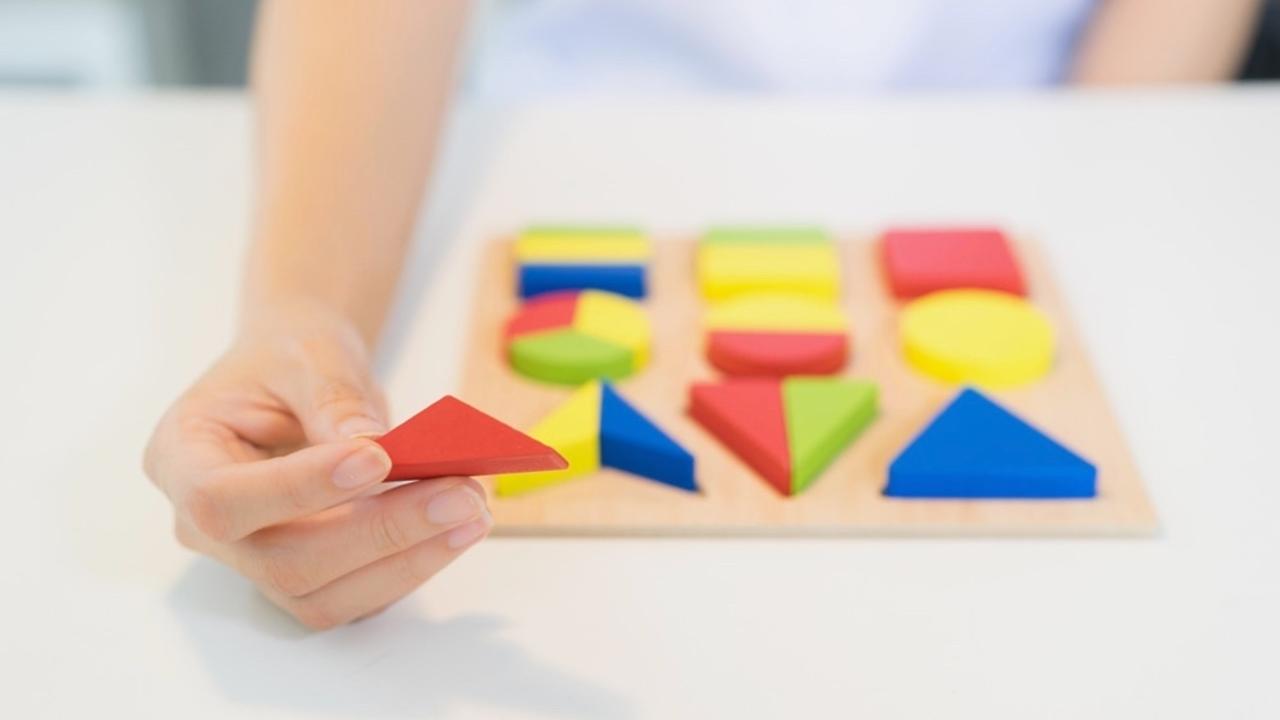Executive Functioning In Children: 5 Things All Parents Need To Know

How’s your week going? Let me guess...
You have everything running perfectly on schedule, right? You’ve gotten all the house projects done, laundry put away, finished everything at the office at least 48 hours before it was due, and baked three dozen sparkly cupcakes for the bake sale... AND your children got along without fighting, listened every time you asked them to do something, and sat quietly (without prompting) when you had to answer the phone. Whew, a truly perfect day. Or was it a little more complicated than that?
Regardless of what you accomplished today, let me reassure you that this parenting thing is a lot of work… for all of us! And when you really think about it, it’s amazing that as parents, we are able to balance so many different roles at one time. Seriously, how do we do it? Whether you realize it or not, you constantly use executive functions to help you get through your to-do list every day. This unique set of cognitive skills helps us every time we set a goal, make a plan, and implement it (MANY times each day).
What are the executive functions?
Executive functions are a set of brain-based skills that allow us to make decisions, plan activities, and stay focused while accomplishing our goals. Executive functions guide us as we complete multi-step tasks, manage our schedules, and talk with friends. They also help us pay attention to a boring task, change plans when we need to, and stop ourselves from saying what we are truly thinking (when our true thoughts could get us in trouble).
Kids are developing executive function skills, too!
All children are developing executive function skills, from infancy through young adulthood. If you are a parent of a child with ADHD, autism, a language disorder, or learning disability, you have probably heard the term “executive function.” You may have even been told that your child needs support in the area of executive function, but you may not know exactly what that means. Ironically, we use these skills every day, but most of us can’t easily define what they are. Of course, if your child or teen has executive functioning weaknesses, you can probably point out the functional impact of their deficit with ease.
How do I know if my child has executive function weaknesses?
- Does your child seem to leave a trail of items everywhere they go, or struggle to pick up their things when asked?
- Is homework a daily chore that causes tears and frustration for everyone involved?
- Do you find your child getting distracted frequently, so that everyday tasks like taking a shower can become complicated and take an unnecessary amount of time?
- Are you constantly reminding your child to remember important things (lunch, soccer uniform, homework folder, etc.) and feeling like a nag as you repeat yourself constantly?
- Do you see your child over-reacting to minor problems, such as a change in plans or a small disappointment?
If you can relate to one or more of these examples, your child may have executive function weaknesses, which can significantly impact their ability to accomplish tasks with independence. The reality is, even if just one family member has poor executive function, it can cause significant challenges for the entire family. Fortunately, there are many strategies you can use to work on these important skills. Over the next several blog posts, we are going to be explaining what executive functions are, how they work, and most importantly, how to help your child develop these skills.
Five Things Every Parent Needs to Know About Executive Function:
- Executive functions are a unique set of skills.They go by a lot of different names, but just to keep it consistent, we will be referring to nine executive functions taken from the Behavior Rating Inventory of Executive Function, Second Edition (BRIEF2; Gioia, Isquith, Guy, & Kenworthy, 2015).
- Inhibition
- Self-Monitoring
- Shift (cognitive flexibility)
- Emotional Control
- Initiation
- Working Memory
- Planning
- Task-Monitoring
- Organization
- Everyone has strengths and weaknesses in their executive function profile. Despite the way it may seem, none of us have it together all the time. Some people have more will-power (inhibition) than others, and we all have that one messy closet... or two… that we just can’t seem to keep organized. Even as adults, we all have areas of strength and weakness. Real talk: I love to keep things clean and tidy (organization is my jam), but have a hard time getting started on certain tasks (initiation) and I get easily stressed when we have to change plans last minute (shift). On the other hand, my husband can stay calm in almost every situation (emotional control), but could not tell you how long it takes to do ANY task and can quickly lose track of time (planning/self-monitoring). Let’s just say we balance each other out.
- Executive functions are connected and work together. Think about something that we expect our children to do regularly, like cleaning their room. With just ONE request, we are asking our children to use several executive functions at once. For example, the child has to shift from whatever they were doing before you made the request. They need to have a plan for what the room should look like when they are done and a sense of where each item should go (organization). They need to task-monitor so they do the “right amount” of work (have you have sent your child to clean their room and found them getting way too focused on the details, but missing the big picture?) They need to show emotional control and stay calm, rather than getting frustrated at the amount of work that needs to be done. The executive functions don’t work in isolation from one another, they work together.
- Executive functions take years to fully develop in everyone, not just exceptional children. Executive function skills begin to develop in late infancy and continue to solidify into adulthood. In fact, research shows that executive function skills don’t peak until we reach age 25. This means that ALL children sometimes have issues with planning a task, organizing their things, staying calm, and changing plans. When a child is described as having “executive function deficits,” it usually means that they are not developing executive function at the same rate as their friends. However, they likely still have some strong areas and some weaker areas.
- Many of the executive functions can be improved with quality intervention. It’s true! We can work with our children and support their ability to gather all of their materials before starting a project, to take deep breaths or go for a walk when angry, or to think of a new solution when our first plan didn’t work. There is no “magic cure” for these challenges, but with practice and a LOT of patience, we are all capable of learning new skills. As professionals and parents, we understand the struggles you face on a daily basis, and we want to help. We want to provide you with concrete ways to improve your child’s executive function, and make life a little easier. We are all in this together.
We want to hear from you! What questions do you have about executive function? If you want free resources and information about how to support your child, sign up for our email list and follow us on social media.
And if your child has ADHD, you DO NOT want to miss our comprehensive, science-backed, FREE ADHD treatment guide. We break down the most popular ADHD treatments, and explain the science behind them - so you can confidently support your child!
For Part 2 of our Executive Function series, click here.
For Part 3 of our Executive Function series, click here.
All the best,



